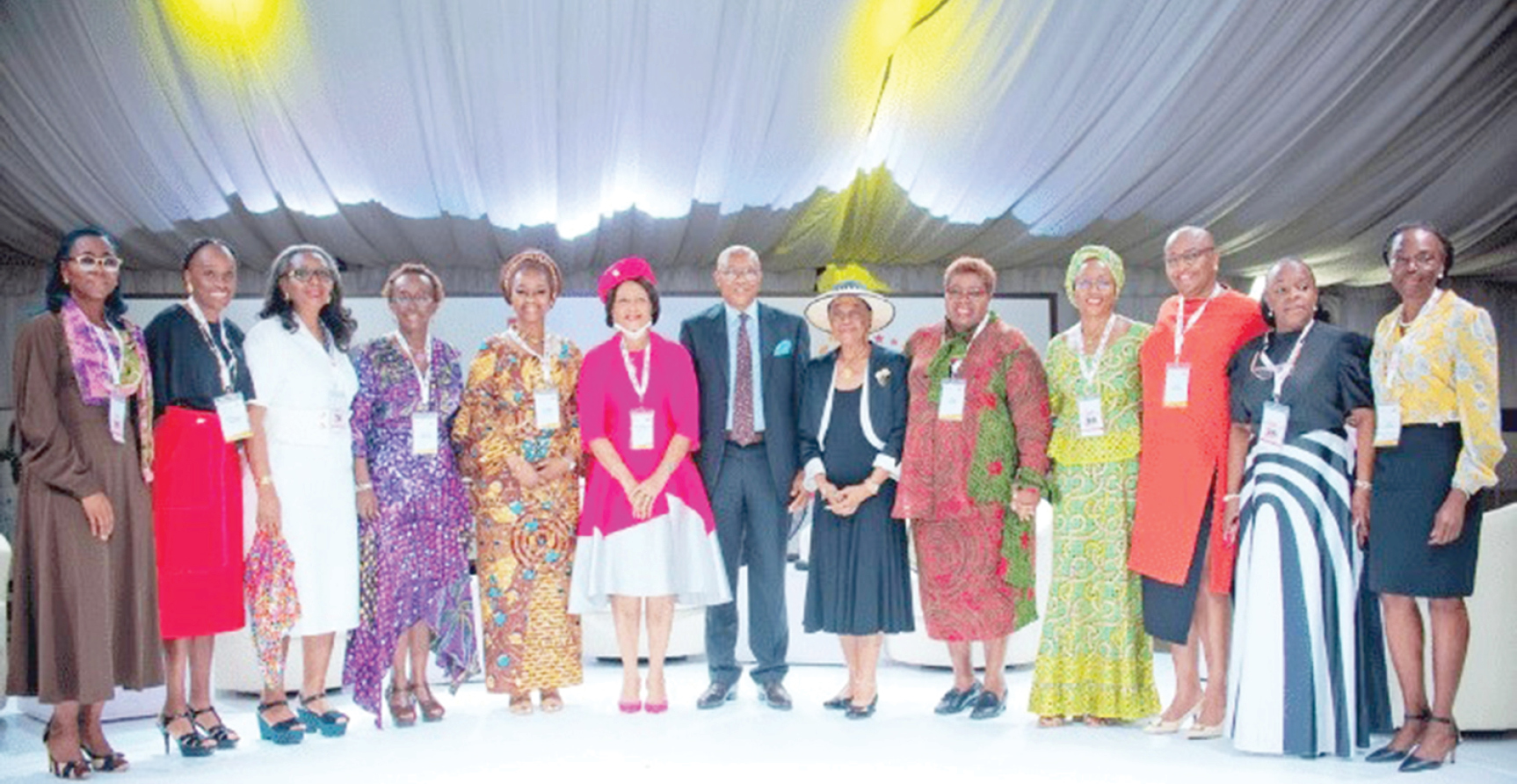The quest for a better and more buoyant economy has called for all hands on deck to put all resources in place for better growth. Meanwhile, experts say closing the gender gap in business will be resourceful in boosting the nation’s economy. Daily Trust Saturday reports.
The upscale advocacies for gender inclusion both globally and within the country have been an indicator to the untapped potentials of women in the deferent sectors of the country.
Despite the large population of women in Nigeria, equal opportunities for women to favourably thrive and make an impact on the country’s economy as well as other areas has been a thing of concern.
The very fact that initiatives abound to this purpose, is an indication that there is a problem at the moment.
- Demolition: I could have slapped Kwankwaso at Aso Rock – Ganduje
- Corpse of kidnapped former Imo Speaker’s orderly found
In this report, Daily Trust Saturday examines the contributions of women to the country’s economy and some of the challenges women in business are faced with.
According to a pwc 2020 report, women in Nigerian, account for 41 per cent ownership of micro-businesses, with nearly 23 million female entrepreneurs operating micro-businesses.
Meanwhile, a McKinsey Global Institute report indicated that $12 trillion could be added to global GDP by 2025 if the gender gap is narrowed.
About Nigeria, the report revealed that achieving gender equality could increase the country’s GDP by as much as 19 per cent or $90bn by 2025.
Prevalence of gender inequality in businesses
The negative impact of gender inequality in Nigeria leaves a dent on every aspect of society, which no doubt includes business.
This age long cultural practice of patriarchy in the country has dared efforts to achieve gender parity.
In an interview with Daily Trust Saturday, Dr Janet Adetu, Chief Executive Officer JSK consulting group, attested to the disadvantaged position of women in business in Nigeria, but added that a lot can still be achieved by them. She said “The challenge really is how we can scale our businesses, so we need to move forward. A lot of women feel very comfortable in their comfort zone, forgetting that there’s a whole lot out there to achieve. We need to do something new; we (women) need to tell ourselves we can do a lot and that we have something to offer. If someone else is doing what you have in mind to do, you can still come up with something in a different way because we have something to bring to table. Don’t let your idea die; you might need to collaborate with other women or partner with people to achieve it. The most important thing is to believe in yourself, that you can do it and make a difference,” she said.
However, when it comes to gender equality in business, experts have attributed the challenges that hinder women to a variety of reasons which include the limited representation of women at executive levels or underrepresentation of women in executive positions.
This is said to be a key indicator of gender inequality in Nigerian businesses. According to a recent report by the International Finance Corporation (IFC), women hold only 20.2 per cent of senior management roles in companies within the country.
This figure highlights the significant gender gap that exists in decision-making positions and accentuates the need for concerted efforts to promote women’s leadership and inclusion.
Also, the gender wage gap remains a persistent challenge for women in businesses. The National Bureau of Statistics 2021 report indicated that Nigerian women, on average, earn 34.8 per cent less than their male counterparts. This disparity affects women across all sectors and occupations, impeding their economic empowerment and contributing to broader gender inequalities within society.
Meanwhile, limited access to financial resources has stunted the growth of many businesses in the country. Since access to financial resources is vital for business growth and sustainability, many businesses have suffered this problem. Although interventions from government and none government actors have provided relief for women-owned businesses, more has been advocated for.
A 2022 study conducted by the International Trade Centre (ITC) revealed that women-owned businesses in Nigeria receive only 10 per cent of available commercial loans, highlighting the systemic biases that hinder women’s economic progress and entrepreneurship.
Another aspect of gender inequality in Nigerian businesses is the gender gap in entrepreneurship. According to the Global Entrepreneurship Monitor (GEM) 2020/2021 report, women in Nigeria are less likely to engage in early-stage entrepreneurial activities, with only 26.8 per cent of women participating compared to 38.9 per cent of men. This disparity demonstrates the need for targeted interventions to enhance women’s access to entrepreneurial opportunities and to support their business ventures.
The deeply entrenched socio-cultural norms aid to perpetuate gender inequality in Nigerian businesses. Traditional gender roles, expectations, and stereotypes limit women’s participation, mobility, and decision-making abilities in the corporate world.
Why gender participation in business needs to be improved
According to a 2015 McKinsey Global Institute report, the narrowing of gender gap in Nigeria could increase the country’s GDP by as much as 16 per cent by 2025.
Also, a 2023 World Bank report indicated that a one per cent increase in women’s contribution in business globally will raise the level of GDP by 58.4 per cent.
Over the years, concerted efforts have been made to improve female participation in business in other to create a more inclusive and equitable environment for women in businesses to thrive.
Government and non-governmental organisations in Nigeria have launched various women empowerment programs to enhance female participation in business. An example of such is The Bank of Industry’s Gender Business Department, which provides financial support, capacity building, and mentorship opportunities to women-owned businesses.
In an interview with Daily Trust Saturday, Onyeche Agbiti Douglas, Project Manager for BRAVE women Nigeria, of the Bank of Industry, said initiatives such as BRAVE was to help women-owned businesses to thrive even under difficult circumstances.
She added that BRAVE “is part of a global initiative funded by the women entrepreneurs finance initiatives, with an overall focus on helping women-owned or led businesses to be resilient and be able to thrive under difficult circumstances.”
Other benefits of bridging the gender gap according to experts are job creation and employment, poverty reduction and social development, among others.
Meanwhile, the country Director of WEConnect International, Mr Yeshua Russel, while affirming the important role gender parity plays on the country’s economy, said that “if we have some gender parity, Africa’s GDP will drastically increase. Whenever we ignore women owned businesses in supply chains, those supply chains suffer because women tend to employ women, women buy from women; they tend to invest in their communities and families,” he said.
Meanwhile, during the 2023 WEConnect international regional conference that took place in Abuja in May, the conversation at the event was anchored around bridging the digital and business gender divide in corporate procurement.
The global platform that connects women-owned businesses to qualified buyers around the world, evolved from encouraging women in business and providing a platform where they can connect, to having women in corporate procurement as contractors, vendors and suppliers.

 Join Daily Trust WhatsApp Community For Quick Access To News and Happenings Around You.
Join Daily Trust WhatsApp Community For Quick Access To News and Happenings Around You.


